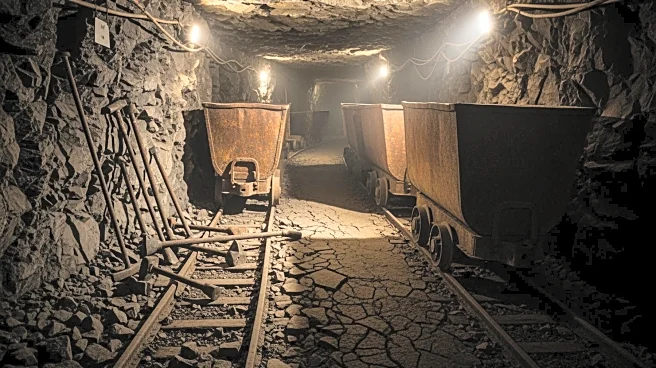What's Happening?
Christine Lagarde, head of the European Central Bank, has warned that undermining the independence of the U.S. Federal Reserve would pose a 'very serious danger' to the global economy. President Trump has repeatedly criticized the Fed's leadership, particularly its chair, Jerome Powell, and has expressed a desire for significant interest rate cuts to boost economic growth. The Fed's current target for its main interest rate is 4.25% to 4.5%, while Trump wants it reduced to less than 1%. Despite Trump's pressure, the Fed has maintained its rates amid concerns about inflation. Lagarde emphasized the importance of the Fed's independence in maintaining economic stability.
Why It's Important?
The independence of the Federal Reserve is crucial for maintaining economic stability and preventing political influence over monetary policy. Trump's criticism and attempts to influence the Fed's decisions could lead to uncertainty in financial markets and impact global economic confidence. If the Fed were to lose its independence, it could result in unpredictable economic policies that may destabilize the U.S. economy and have ripple effects worldwide. Lagarde's warning underscores the potential risks of politicizing central bank decisions, which could undermine trust in economic governance.
What's Next?
The ongoing tension between Trump and the Federal Reserve may lead to further scrutiny of the Fed's decision-making process and its ability to resist political pressure. Financial markets and global economic stakeholders will likely monitor the situation closely, assessing the impact of any changes in U.S. monetary policy. The Fed's upcoming interest rate decisions will be pivotal in determining its stance on inflation and economic growth, potentially influencing international economic trends. Legal and political challenges may arise if Trump continues to push for changes in the Fed's leadership or policies.
Beyond the Headlines
The debate over the Fed's independence highlights broader issues of governance and the role of central banks in democratic societies. It raises questions about the balance between political accountability and economic expertise in shaping monetary policy. The situation may also influence discussions on the global stage regarding the independence of central banks and their role in maintaining economic stability. Long-term, the issue could affect perceptions of U.S. economic leadership and its influence on international financial systems.








